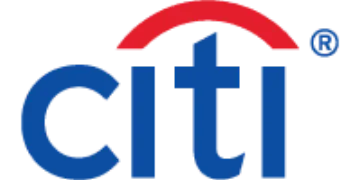Best Debt Management Plan Companies in Singapore
Updated: 29 Sept 2025
Written bySingSaver Team
Team

The information on this page is for educational and informational purposes only and should not be considered financial or investment advice. While we review and compare financial products to help you find the best options, we do not provide personalised recommendations or investment advisory services. Always do your own research or consult a licensed financial professional before making any financial decisions.
If mounting debt repayments are becoming unmanageable, approaching a debt consolidation company could be a viable solution.
A debt consolidation company offers plans that combine multiple unsecured debts — such as credit card balances and personal loans — into a single loan with a lower interest rate. This structured repayment plan typically spans three to five years, making it easier to clear outstanding balances while reducing overall interest costs.
The terms and fees associated with such plans vary by the debt consolidation company. In some cases, individuals facing financial difficulties may be eligible for fee waivers or lower interest rates, helping them regain financial stability more effectively.
Compare debt management plans from banks
Taking a S$30,000 loan with a tenure of 5 years as a reference, here’s how debt management plans from various banks in Singapore measure up:
|
Bank |
Effective Interest Rate (EIR) |
Monthly repayment |
Total cost of loan |
|
HSBC |
8.0% |
S$608.29 |
S$36,498 |
|
Standard Chartered |
6.95% |
S$587 |
S$35,220 |
|
DBS/POSB |
6.56% |
S$589.50 |
S$35,469 (inclusive of one-time S$99 processing fee) |
|
OCBC |
8.29% |
S$608.16 |
S$36,598.54 |
|
UOB |
8.22% |
S$607.23 |
S$36,433.50 |
|
Citibank |
10.5% |
S$637.80 |
S$36.267.88 |
Compare debt management plans from licensed moneylenders
Under Ministry of Law rules, licensed moneylenders can charge up to 4% interest per month on outstanding loans, plus a late interest cap of 4% per month only on overdue sums, with tightly regulated admin and late fees. This works out to an effective annual rate in the high-20% range, making debt consolidation plans from moneylenders far costlier than those offered by banks.
Some licensed moneylenders verified by MinLaw include Credit 21, 1AP Capital, Lending Bee, GS Credit, Quick Credit, Bugis Credit, Horison Credit, Credit Thirty3, Katong Credit, and OT Credit.
Debt consolidation plans by licensed moneylenders may suit those who don’t qualify for a bank DCP or need urgent short-term cash flow. But the higher cost means they should only be considered as a last resort, after exploring bank plans or credit counselling.
Best debt consolidation plans in Singapore (2025)
For cashback on refinancing
1. Go to HSBC site and click the 'Apply Now' button under 'Personal Loans'
2. Fill out application and submit any and all required documents
3. Wait for approval of personal loan
- Enjoy personalised interest rates starting from 3.4% p.a. (EIR 6.5% p.a.) + a S$0 processing fee, based on your personal credit profile
- Receive 5% cashback upon approval of your Debt Consolidation Plan refinancing with HSBC. Terms and Conditions apply.
- Only applicable for Singaporeans and Singapore Permanent Residents
- Enjoy interest savings as you manage only one account for all your outstanding balances with fixed monthly repayment
- Loan tenor of up to 10 years is available for affordable monthly repayment
- Enjoy the perks and benefits of HSBC Visa Platinum Card with credit limit of 1x of your monthly income and annual fee waiver
- Receive a free credit bureau report from HSBC; no loan application required
1. NRIC (Front & back)
2. For salaried employees:
- Latest 3 months' computerized payslips; or
- Latest Notice of Assessment with latest 1 month's computerized payslip; or
- Latest 6 months' CPF statements with latest 1 month's computerized payslip or latest
- Notice of Assessment;
3.For self-employed/ commissioned-based earners:
- Last 2 years' Notice of Assessment -Latest Credit Bureau Report (consumer's version)
- Latest statements of the all existing unsecured credit facilities
The information displayed above is for reference only. The actual rates offered to you will be based on your credit score and is subject to the provider’s approval.
HSBC Debt Consolidation Plan
- Annual interest rate: 4.5%
-
Effective interest rate: 8.0%
-
Processing fees: None
-
Maximum tenure: 10 years
SingSaver’s take
HSBC offers one of the lowest interest rates for a Debt Consolidation Plan (DCP) in Singapore, starting from 4.5% p.a. (EIR 8.0% p.a.), with a repayment period of up to 10 years. This extended tenure allows for lower monthly repayments, making it a viable option for those looking to manage their debts effectively. However, the final interest rate offered will depend on factors such as your Credit Bureau report and overall financial profile.
Pros
Get up to 5% cashback when you refinance an existing Debt Consolidation Plan from another bank
Approved applicants are given an HSBC Visa Platinum Card with a credit limit of 1x their monthly salary, which can help with day-to-day spending and promote responsible use of credit
Cons
The plan is exclusively available to Singapore Citizens and Permanent Residents, which means it is not an option for foreign residents
Applicants must meet certain income and debt criteria to be eligible for the plan
Best for low interest rates
1. Go to Standard Chartered site and click the “Apply Now” button under "Debt Consolidation Plans"
2. Fill out application and submit any and all required documents
3. Wait for approval of personal loan
- Enjoy an interest rate from as low as 3.48% p.a. (EIR 6.33% p.a.). The interest rate offered to you may differ based on your personal credit profile.
- Enjoy interest savings as you manage only one account for all your outstanding balances with a fixed monthly repayment
- Loan tenor of 3 to 10 years available for affordable monthly repayment
- Enjoy the perks and benefits of Standard Chartered Platinum Mastercard with credit limit of 1x of your monthly income and annual fee waiver
- One-time joining fee of S$199
- Only applicable to Singaporeans and Singapore Permanent Residents
- Copy of Passport (with at least 6 months' validity), including the page with address displayed (where applicable)
- Copy of your Employment Pass
- Any ONE of the following documents:
- Latest utility bill, rates or tax bill
- Latest bank / credit card statement (e-Statements are accepted)
- Rental agreement showing your address
- Latest mobile phone statement or pay-TV statement
- Letter from employer stating current address
- Government-issued document stating current address (e.g. IRAS, CPF, ICA)
For SingPass holders applying with MyInfo, please prepare the following:
The information displayed above is for reference only. The actual rates offered to you will be based on your credit score and is subject to the provider’s approval.
Standard Chartered Debt Consolidation Plan
-
Annual interest rate: 3.48%
-
Effective interest rate: 6.33%
-
Processing fees: S$199 joining fee
-
Maximum tenure: 10 years
SingSaver’s take
Standard Chartered offers a flexible monthly instalment plan with interest rates starting from 3.48% p.a. (EIR 6.33% p.a.), making it one of the most competitive DCPs available. Borrowers can select a repayment tenure of up to 10 years, allowing for greater control over their monthly repayment amounts. However, the final interest rate you receive is subject to Standard Chartered’s assessment of your Credit Bureau report and overall financial standing.
Pros
Up to 6% cashback for refinancing an existing DCP — a strong incentive to switch or renew
Bonus benefit: upon approval, you receive a Standard Chartered Platinum Mastercard with a credit limit equal to one month’s income, giving you extra liquidity
Cons
Only available to Singapore Citizens and PRs — foreign residents are excluded
Must meet the bank’s income and debt-level criteria, which may limit eligibility
The credit card benefit (Platinum Mastercard) adds temptation to incur new debt, undermining consolidation goals
One-time joining fee of S$199 applicable
Best for Singaporeans/PRs with a moderate income

DBS Debt Consolidation
1. Go to DBS website
2. Download and fill up the editable Unsecured facilities Declaration PDF form.
3. Check that all required documents are in order.
4. Submit application online
- Interest rates at 3.58% p.a. (EIR 8.22% p.a.)
- Loan tenor of 1 to 8 years is available for affordable monthly repayment
- Get a DBS Visa Credit Card to provide you with a convenient mode of payment for managing your daily essentials with credit limit of 1x of monthly income and annual fee waiver
- Only applicable to Singaporeans and Singapore Permanent Residents
- Your total interest-bearing unsecured debt on all credit cards and unsecured credit facilities with financial institutions in Singapore must exceed 12 times your monthly income in order to qualify for a Debt Consolidation Plan
- Processing fee: S$99
- Early termination fee: 5% on the balance outstanding at point of termination
- Late fee: S$90
1. NRIC (Front & back)
2.Latest Credit Bureau report
3.Income document(s)
4. Latest credit card and unsecured credit loan statements
5. Confirmation letter evidencing unbilled balances for unsecured credit instalment plans (if any)
6. Settlement notice from the original DC bank (only applicable to DCP refinancing applications)
The information displayed above is for reference only. The actual rates offered to you will be based on your credit score and is subject to the provider’s approval.
DBS Debt Consolidation Plan
-
Annual interest rate: 3.58%
-
Effective interest rate: 6.56%
-
Processing fees: S$99
-
Maximum tenure: 8 years
SingSaver’s take
DBS offers a limited-time interest rate of 3.58% p.a. (EIR 6.56% p.a.), allowing borrowers to consolidate multiple debts into a single repayment plan with a flexible tenure of up to 8 years. This can help borrowers manage their finances more effectively by reducing the interest burden and making repayments more structured.
This plan is best suited for Singapore Citizens or PRs with substantial unsecured debts spread across multiple banks or credit lines, especially those who want the assurance of a fixed repayment schedule and prefer working with one of Singapore’s largest and most established banks. It’s particularly helpful for borrowers who have consistent income and are focused on long-term repayment discipline but need breathing space from high-interest credit card or personal loan rates.
Pros
You get a DBS Visa Platinum Credit Card with credit limit equal to one month’s income, giving you extra liquidity for everyday spending
Available to Singapore Citizens and PRs aged 21–65 with moderate incomes (S$30,000 to S$120,000), which covers a broad segment of working adults
The qualification criterion requiring a Balance-to-Income (BTI) ratio > 12× monthly income ensures that users are likely to have sufficient debt to meaningfully benefit from consolidation
Cons
Processing fee of S$99 adds to the cost of consolidation
Early repayment is penalised by a 5% termination fee on the outstanding balance, reducing flexibility if you want to clear the debt ahead of schedule
The income cap (S$120,000) might exclude higher-earning individuals who would otherwise benefit from a more flexible consolidation plan
Best for high unsecured debts

Citi Debt Consolidation Plan
Visit the Citibank website and select 'Debt Consolidation Plans' under 'Loans', click the “How To Apply” button.
Option 1: Dial Citi at 6397 4888
Option 2: SMS <DCP> to 72484
Option 3: Click here to submit your details for Citi to call you back.
- Enjoy interest savings with no processing fees
- Interest rates from as low as 3.99% p.a. (EIR 7.50% p.a.)
- Enjoy interest savings as you manage only one account for all your outstanding balances with a fixed monthly repayment
- Loan tenor of up to 7 years available for affordable monthly repayment
- Get a credit card with credit limit 1x your monthly income
- Receive complimentary insurance coverage of up to S$160,000. More information here
1. Completed and signed application form.
2. Copy of NRIC (Front & back)
3. Latest copy of your Credit Bureau Report.
4. Latest income documents (dated within last 3 months):
- Latest computerised payslip;
- Latest Income Tax Notice of Assessment;
- Latest 12 months' CPF Contribution History Statement (only applicable for income earner of S$6,000 or less per month)
5. Proof of balances (billed and unbilled) for all your credit cards and/or unsecured credit facilities such as statements and confirmation letters.
The information displayed above is for reference only. The actual rates offered to you will be based on your credit score and is subject to the provider’s approval.
Citi Debt Consolidation Plan
-
Annual interest rate: 5.95%
-
Effective interest rate: 10.5%
-
Processing fees: None
-
Maximum tenure: 7 years
SingSaver’s take
Citi’s Debt Consolidation Plan offers a competitive interest rate starting from 3.99% p.a., with an effective interest rate (EIR) varying based on the loan tenure. Unlike many other DCPs, Citi does not charge a processing fee, making it a cost-effective choice for borrowers looking to consolidate multiple unsecured debts into a single repayment plan. Loan tenures range from 3 to 7 years, providing flexibility in managing monthly repayments.
Pros
Comes with complimentary protection insurance coverage up to S$160,000, adding a layer of financial security in case of death, disability, or critical illness
Applicants receive a Citi credit card whose limit equals their monthly income — useful for handling day-to-day expenses without needing to open another credit line
Requires outstanding unsecured debt of at least 12× monthly income, which ensures that the plan is used for substantive debt burdens
Cons
The Citi credit card benefit, while convenient, could encourage new spending and undermine repayment discipline
The 5% buffer means you may borrow a bit more than your debts, in effect increasing interest costs slightly over what you strictly needed
The eligibility rule requiring unsecured debts ≥ 12× monthly income excludes those with lower debt loads who still could benefit from consolidation
Best for tiered interest rates

UOB Debt Consolidation Plan
Contact UOB loan associates at +65 6715 5690 (Mon – Fri, 9am – 6pm)
OR
Provide your details here and UOB loan associates will be in touch with you within 2 business days.
OR
Complete the application form together with your supporting documents and email them to uobdcp@uobgroup.com
- Only applicable to Singaporeans and Singapore Permanent Residents
- Enjoy interest savings from as low as 4.50% p.a. (EIR 8.22% p.a.) with loan tenure of 6 years
- Loan tenor of up to 6 years available for affordable monthly repayment
- Receive a complementary Visa Platinum card with a credit limit 1x your monthly income
- Manage only one account for all your outstanding balances with fixed monthly repayment
1. NRIC (Front & back)
2. Latest Credit bureau report
3. Latest Income Documents:
4. For salaried employees – Latest computerised payslip (in Singapore Dollar currency)
5. For self-employed – Latest Income Tax Notice of Assessment
6. Latest credit card & credit line statements of other banks which you have outstanding balances
7. Confirmation letter evidencing unbilled balances for unsecured credit instalment plans (If any)
The information displayed above is for reference only. The actual rates offered to you will be based on your credit score and is subject to the provider’s approval.
UOB Debt Consolidation Plan
-
Annual interest rate: 4.5% (For tenures between 1 and 6 years; 5.5% for tenures between 7 and 8 years)
-
Effective interest rate: 8.22% (Tiered based on loan tenure, going up to 10.41% for 8-year tenures)
-
Processing fees: None
-
Maximum tenure: 8 years
SingSaver’s take
UOB offers a Debt Consolidation Plan (DCP) with interest rates starting from 4.50% p.a. (EIR 8.22% p.a.) for a loan tenure of up to 8 years. This plan is designed to help borrowers streamline multiple unsecured debts into a single repayment, reducing overall interest costs and making debt management more manageable.
Pros
Flexible repayment options with a choice of fixed or tiered interest rates to suit different needs
Comes with a UOB Visa Platinum Card (credit limit = 1× monthly income) to help manage essential expenses and cash flow
Available to a broad income group (S$30,000 to below S$120,000 annually)
Cons
Only available to Singapore Citizens and PRs — excludes foreigners
Eligibility requires unsecured debt > 12× monthly income, so those with lower debt levels won’t qualify
The provided Platinum Card may tempt overspending if not used carefully, potentially undermining consolidation benefits
Interest rate structure (tiered or fixed) may result in higher overall costs depending on tenure chosen
Best for fixed monthly payments
BOC Debt Consolidation Plan
-
Annual interest rate: 6%
-
Effective interest rate: 7.48%
-
Processing fees: Not mentioned
-
Maximum tenure: 10 years
SingSaver’s take
BOC offers a Debt Consolidation Plan with an annual interest rate of 6% (EIR 7.48%) and a maximum tenure of up to 10 years. It provides borrowers with fixed monthly repayments for predictable financial planning and includes a complimentary BOC Family Card with no annual fee for the duration of the loan. While processing fees are not clearly stated, the plan is designed to give borrowers stability and additional value.
This plan is best suited for borrowers who prioritise long-term stability in repayments and want the peace of mind of a fixed instalment structure. It is ideal for Singapore Citizens or PRs aged 25 and above who earn at least S$30,000 annually and have significant unsecured debts exceeding 12× their monthly income. The added benefit of a no-fee credit card makes it attractive for those seeking to manage debt without losing day-to-day spending flexibility.
Pros
Offers fixed monthly repayments, making it easier to budget and plan finances
Comes with a complimentary BOC credit Card, with no annual fee throughout the loan tenure
Accessible to applicants with an annual income of S$30,000 and above
Cons
Only available to Singapore Citizens and PRs — foreigners are not eligible
Minimum age requirement is 25 years, which excludes younger working adults
Applicants must have unsecured debts exceeding 12× monthly income, limiting access for those with lower debt
How to choose the best debt management company in Singapore
Not all DCPs are created equal, and the right plan for you will depend on factors like interest rates, loan tenure, and eligibility criteria. Here are some key considerations when selecting a DCP in Singapore:
-
Compare interest rates and fees: DCPs offer lower interest rates than standard credit cards or personal loans, but rates can vary between banks. Look for a plan with the most competitive effective interest rate (EIR) and minimal processing fees to keep your repayments affordable. Some banks may also offer cashback incentives when you refinance from another provider.
-
Choose the right loan tenure: DCPs typically offer repayment periods between three to 10 years. While a longer tenure reduces monthly instalments, it increases the total interest paid over time. Select a tenure that balances affordability with cost efficiency to avoid paying more than necessary.
-
Consider additional benefits: Some DCPs provide extra perks like cashback for refinancing or a low-limit credit card to help manage daily expenses. If flexibility is important, check whether the plan allows early repayment without excessive penalties.
-
Understand the long-term impact: While a DCP helps consolidate debt into a single monthly payment, it also comes with restrictions, such as limits on taking new unsecured loans until a portion of the debt is cleared. Ensure that you are comfortable with these terms before committing to a plan.
Is a debt consolidation plan right for you?
A DCP can be an effective way to manage and pay off your outstanding debts, but it’s not a one-size-fits-all solution. Before applying, consider whether a DCP aligns with your financial situation and repayment ability. You may benefit from a DCP if you:
-
Have multiple unsecured debts: DCPs are designed to consolidate unsecured debt, such as credit card balances and personal loans, into a single loan with lower interest rates. However, secured debts — such as home loans or car loans — are not eligible for consolidation.
-
Struggle to keep up with repayments: If you’re only able to make the minimum payment on your debts or have missed multiple payments, a DCP can help streamline your repayment into a single monthly instalment, potentially reducing interest rates and helping you clear your debt faster.
-
Have a stable income: To qualify for a DCP in Singapore, you need to be a Singapore Citizen or Permanent Resident with an annual income between S$30,000 and S$120,000. You also need to have unsecured debts exceeding 12 times your monthly income. A steady income is required to show that you can commit to monthly repayments.
-
Can’t qualify for other debt repayment options: Other debt management tools, such as balance transfer credit cards, may offer interest-free repayment periods, but these typically require a good credit score for approval. DCPs do not have a credit score requirement, making them a viable option for individuals struggling with debt repayment.
-
Are comfortable with credit restrictions: When you take on a DCP, you’ll generally be required to close all unsecured credit facilities across financial institutions, except for one low-limit credit card for daily expenses. This means you won’t be able to take on new unsecured loans until a significant portion of your DCP is repaid.
Alternatives to a debt consolidation plan
If a debt consolidation plan isn’t the right fit for you, there are other ways to pay off debt and regain financial stability. Here are some alternative strategies to consider:
Personal loans for debt consolidation
A personal loan can serve as an alternative to a DCP. By taking out a low-interest personal loan, you can consolidate multiple debts into a single fixed repayment. Unlike DCPs, personal loans are more flexible, and you may still be able to use credit facilities while repaying the loan.
However, interest rates for personal loans may be higher than DCPs, depending on your creditworthiness. Ensure the loan's interest rate and tenure make financial sense before committing.
Refinancing existing debts
If your current debts carry high interest rates, refinancing them at a lower rate can help ease your repayment burden. One way to do this is through a balance transfer credit card, which offers 0% interest for a limited period. This allows you to focus on paying down your debt without worrying about accumulating interest, making it a useful short-term strategy for debt repayment.
Another approach is to negotiate directly with your lender. Some banks may be willing to offer a lower interest rate or restructure your repayment plan if you communicate your financial difficulties. This could mean extending your loan tenure to reduce monthly repayments or securing a revised interest rate to make the loan more manageable.
» MORE: Are you accumulating debt without knowing it?
Debt relief options
If your debts significantly exceed your income, more drastic measures such as debt restructuring or bankruptcy may be required. While these options should only be considered as a last resort, they can provide a path to financial recovery if you’re unable to meet repayment obligations.
Stay ahead in everything finance
Subscribe to our newsletter and receive insightful articles, exclusive tips, and the latest financial news, delivered straight to your inbox.
About the author
SingSaver Team
At SingSaver, we make personal finance accessible with easy to understand personal finance reads, tools and money hacks that simplify all of life’s financial decisions for you.


